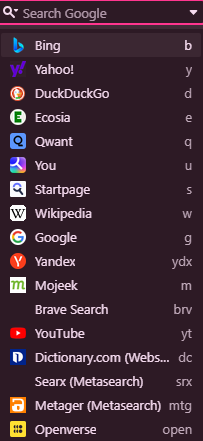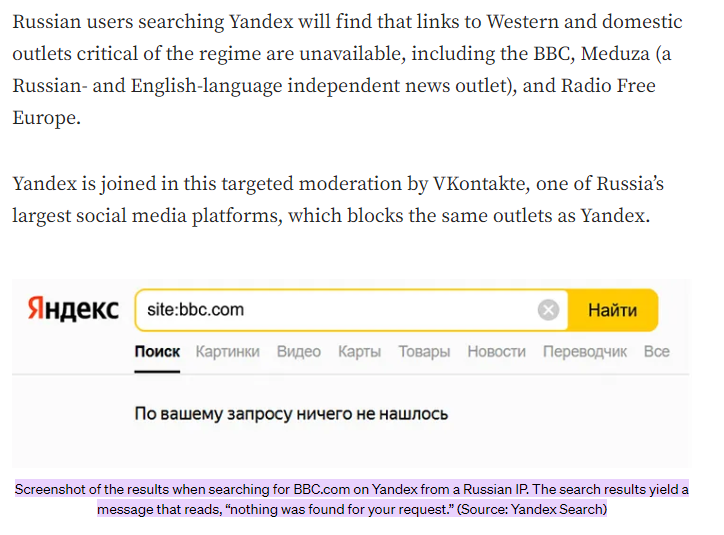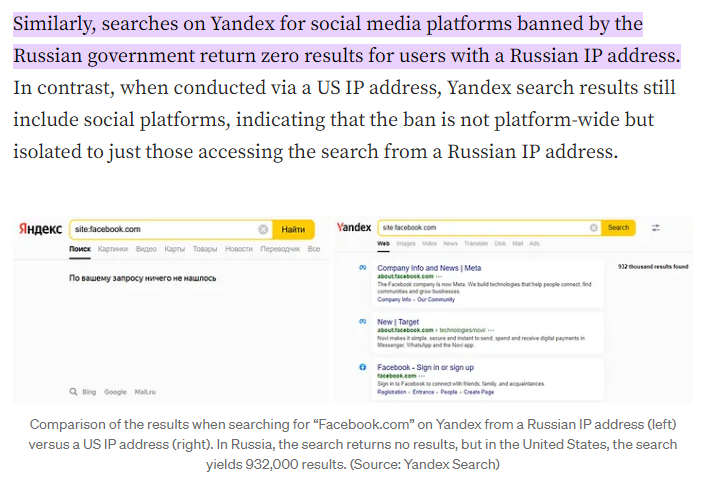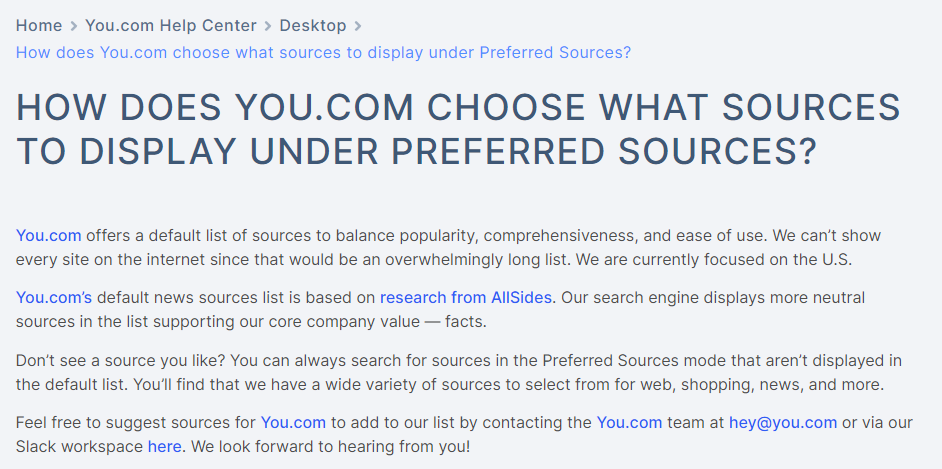Previous Subchapter → 8.2 Stranglehold on Speech
And it’s not just Google that’s complying with these censorship demands from the EU, of the top 5 search engines used around the world, 4 of them are following measures to “derank” Russian state backed media content, that’s Google, Bing, Yahoo (which uses Bing’s algorithm), and DuckDuckGo.
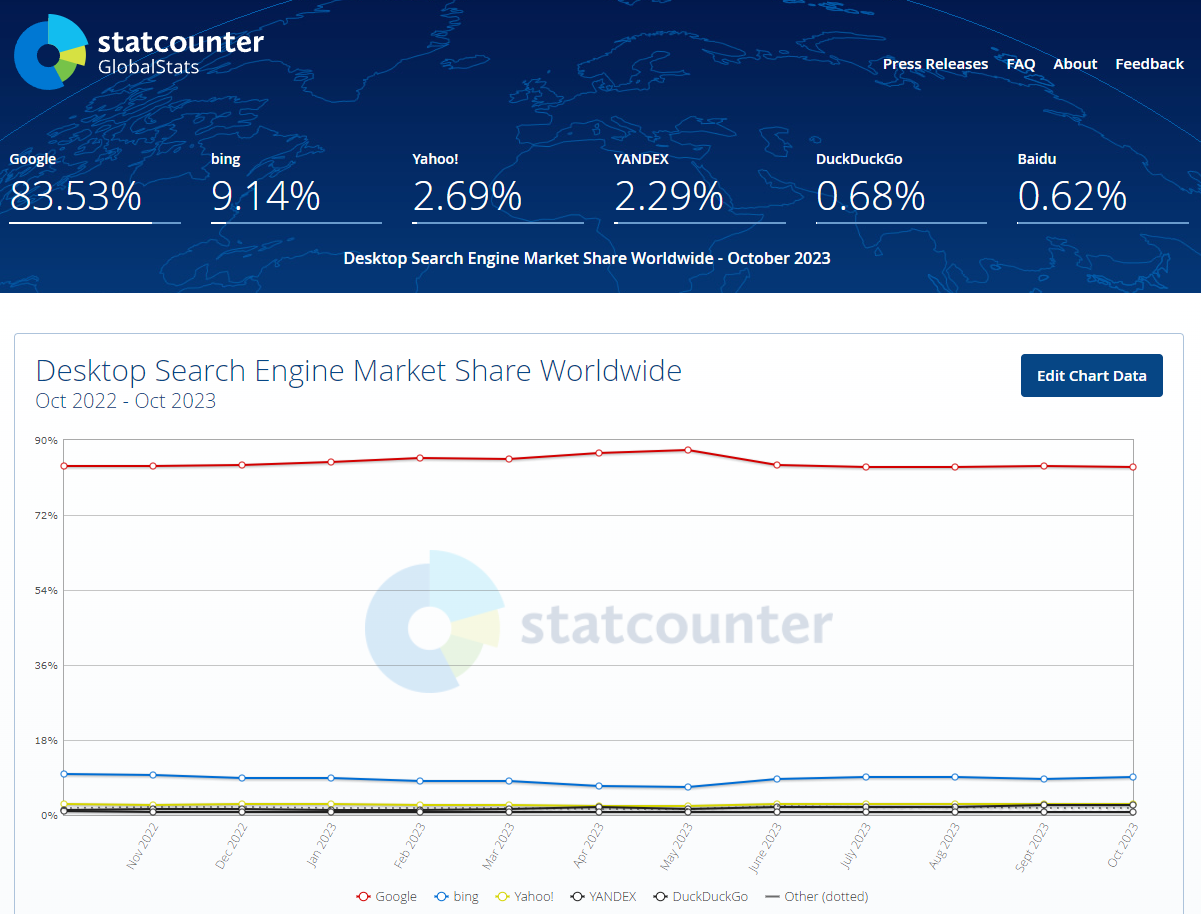
The only one of those 5 that isn’t doing this is Yandex, and that’s because it’s biassing things the other way, deranking or erasing Pro Western or Ukrainian narratives and promoting Pro-Russian ones, that’s because it’s a Russian search engine, and so follows Russian censorship laws: Erasing images of protesters, prioritising Pro-Kremlin outlets and blocking “undesirable” outlets and platforms.
So put simply, unless you’re in the 1% using an obscure, unconventional search engine, your searches are being put through a politicised filter, the excuse that search engine companies have for this is “information quality”: That their engines are simply doing what they’re supposed to do, providing you with reliable, trustworthy results, misinformation obviously isn’t reliable, so deranking it is the natural thing to do.
But this is a very misleading suggestion, DuckDuckGo, Google and other search engine managers aren’t checking through every published article, looking through its sources and context, and deciding case by case what is accurate and what is misleading, they are simply making a blanket assumption that some outlets are misleading and others are reliable.
But that’s not how this media environment works, not every story published by RT is going to be groundless propaganda and not every story published by a Western outlet is going to be backed up by context and facts, so even if we were to assume that this censorship was justified if it promoted quality, that’s not what’s happening, it’s censorship rooted in stereotypes.
And that’s exactly what “deranking” is, it might be a lesser kind of censorship than outright banning “undesirable” outlets, but it’s still designed to limit the spread and impact of those outlets and it still has the same aim: Deciding what you can and can’t see.
Obviously search engines have to include some kind of bias, because anything you search for could lead to hundreds, thousands, tens of thousands or even millions of results and somehow the engine has to choose which results come first, and when you only show 10 or so results per page there has to be a strong algorithm to decide what those results are, but abusing that tool for political censorship is a dangerous game to play.
It’s important to remember that in the past Google used to be committed to providing unbiased search results, and they committed themselves to challenging laws cracking down on internet freedom and freedom of speech, this threat to our rights isn’t normal, it doesn’t need to be normal.
And thankfully, there are still things you can do to counteract it. For example, for our part we’ve taken to using a browser called Vivaldi, which allows you to add as many search engines to your search bar as you like and switch between them on the fly, in one moment you can be searching a topic on Google, the next you can be using Yandex, DuckDuckGo or any other number of search engines.
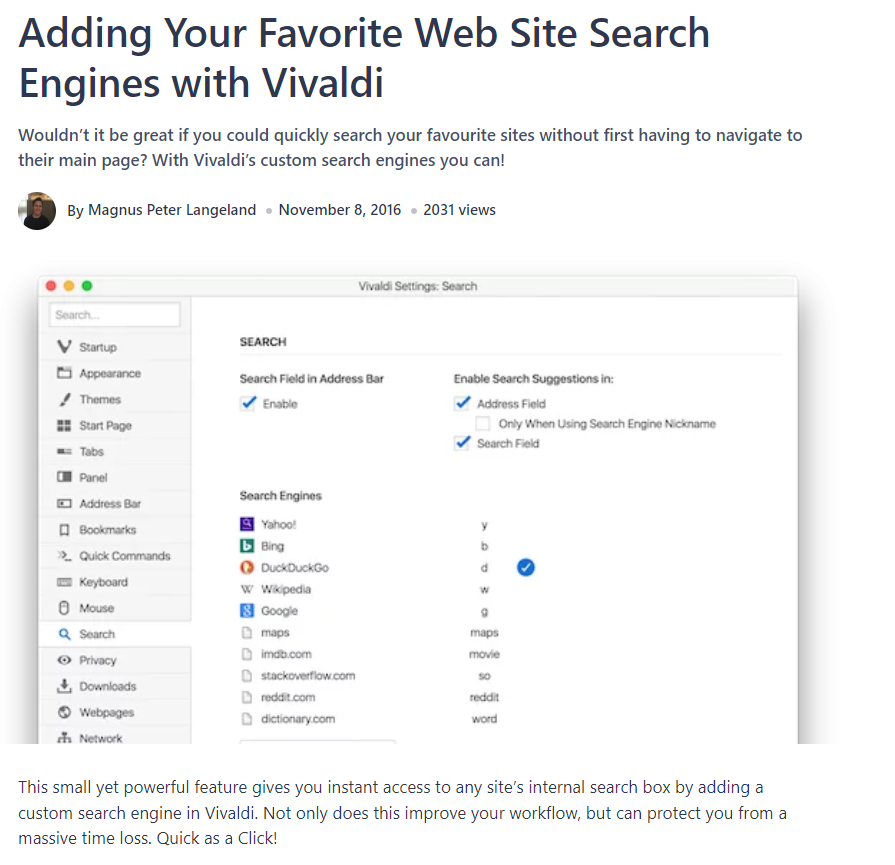
And on top of that, there are search engines that give the user much more control over the algorithms than Google does, for example Brave Search, which lets you customise the ranking system with extensions called “Goggles”, or You.com, which lets you derank or uprank results yourself through its “preferred sources” system.
Alternatively you could look at an engine like Mojeek, which ditches user control in exchange for offering a genuine attempt at unbiased results, removing personalisation as much as possible to minimise manipulation and rejecting the idea that the views of their company should be passed down to users using their service.
These are all different search tools made using different methodologies, but what they all have in common is a rejection of the censorship of governments, and of the companies that comply with them like Google or Yandex, where search queries can be tampered with behind the scenes to push you towards a certain view, and the best thing is, with a service like Vivaldi’s search bar options, you don’t have to make a choice between just one of these options, you can experiment with any number of them!
